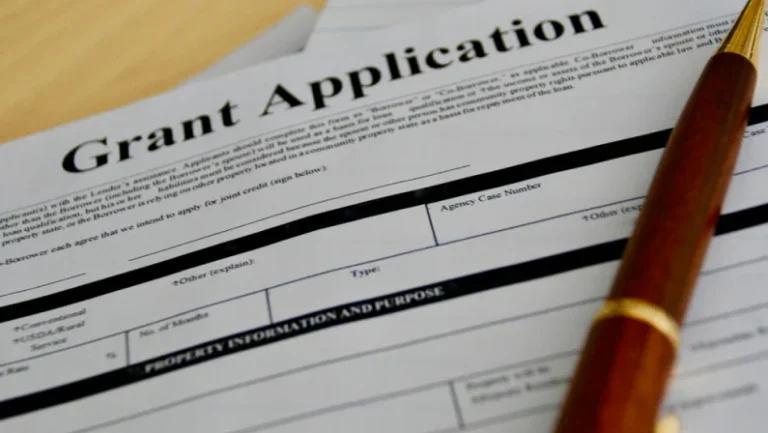Winning a government contract can be a game changer for your business, providing a steady stream of revenue and a prestigious client.
However, navigating the intricacies of government contracting can be daunting. This guide aims to decode the process and offer actionable steps to help you secure those and get the best way to secure a government contract bid.
Decoding the Government Contracting Process
Before bidding on government contracts, it’s essential to understand the entire contracting process.
Pre-RFP Intel in Budgets and Spending Plans
Government agencies often release budgetary and planning documents that outline their spending priorities. By reviewing these documents, businesses can anticipate upcoming contract opportunities and tailor their strategies accordingly.
Currently Open Solicitations Like Bids and RFPs
Monitoring sources such as government websites will help you stay informed about open solicitations, including Requests for Proposals (RFPs) and Invitations for Bid (IFBs). Early identification allows ample time to prepare a competitive bid.
Contract Award Information
Research past contract awards to understand the criteria used for selection and the competition landscape. This historical data offers valuable insights into pricing, proposal strategies, and other key elements.
Exploring Different Types of Government Contracts

Contrary to popular belief, government contracts span various industries and sectors.
Architecture and Engineering Projects
The government regularly requires architectural and engineering services for infrastructure projects. These contracts can range from designing buildings to assessing environmental impacts.
Infrastructure and Construction Contracts
Infrastructure development and maintenance are critical for governments at all levels, creating a plethora of opportunities for construction companies.
Information Technology (IT) Services
From cybersecurity to system upgrades, the need for IT services is ever-growing. Large government contracts in IT often include long-term service agreements.
Professional and Administrative Services
Governments frequently outsource administrative and professional services, including consulting, staffing, and financial management.
Where to Find Contracting Opportunities

Finding the right contracting opportunities is crucial.
1. Government Websites
Websites like FedBizOpps (now beta.SAM.gov) provide centralized listings of government contract opportunities.
2. Specialized Resources
Platforms like the General Services Administration (GSA) and specific state procurement websites also publish contract opportunities.
3. Industry Publications
Industry-specific journals and newsletters often contain information on upcoming contract opportunities.
4. Team up
Collaborating with other businesses or creating joint ventures can open doors to larger contracts and offer a competitive edge.
How to Win a Government Contract Bid
Securing a government contract or federal contract bids involves more than just submitting a proposal.
1. Understand the Agency’s Needs
Research the agency’s mission, goals, and current procurements to tailor your proposal to their specific needs.
2. Qualify Your Business for the Opportunity
Ensure your business meets all the technical and regulatory requirements specified in the solicitation.
3. Create a Winning Bid Strategy
Develop a comprehensive strategy that highlights your strengths and addresses the agency’s needs.
4. Showcase Your Strengths with Past Performance
Use previous successful projects as evidence of your capabilities and reliability.
5. Team Up When Necessary
Consider partnerships or subcontracting to bolster your proposal and fulfill contract requirements.
6. Write a Compliant and Compelling Proposal
Follow the solicitation guidelines meticulously and present a compelling case for why your business is best suited for the contract.
7. Offer Competitive and Transparent Pricing
Ensure your pricing is competitive yet realistic, and provide transparent costing details.
8. Stay Organized and Meet Deadlines
Maintain an organized approach to manage timelines and ensure timely submission of your bid.
9. Build Relationships with Procurement Officials
Networking with procurement officials can provide valuable insights and help you better position your bid.
10. Learn from Every Bid Opportunity
Analyze feedback and outcomes from your bids to improve future submissions.
How to Write Proposals That Win Contracts
A well-crafted proposal is your ticket to winning government contracts.
1. Understand the Solicitation Requirements
Thoroughly review the solicitation document to grasp all requirements and instructions.
2. Customize Your Proposal
Tailor your proposal to the specific needs and objectives of the issuing agency.
3. Focus on Value and Benefits
Highlight the value and benefits your solution brings to the agency, tying them to their goals.
4. Provide a Detailed Scope of Work
Offer a clear and detailed scope of work that outlines how you will deliver the project.
5. Demonstrate Past Performance
Showcase your past performance to provide credibility and build confidence in your capabilities.
6. Emphasize Compliance and Certifications
Ensure all compliance requirements are met, and highlight any relevant certifications your business holds.
7. Offer Competitive and Realistic Pricing
Price your proposal realistically and competitively, clearly justifying all cost elements.
8. Use a Clear and Professional Format
Present your proposal in a clear, professional, and easy-to-navigate format.
9. Include a Strong Executive Summary
Craft a compelling executive summary that concisely presents the key points of your proposal.
10. Follow Submission Guidelines
Adhere strictly to the submission guidelines to avoid disqualification.
Common Mistakes to Avoid in Government Contracting

Avoiding common pitfalls can significantly increase your chances of winning contracts.
1. Failing to Understand Contract Requirements
Misinterpreting requirements can lead to unsuccessful bids. Ensure you fully understand all stipulations.
2. Ignoring Compliance Regulations
Non-compliance can result in disqualification. Stay informed about regulatory requirements.
3. Submitting Incomplete or Incorrect Proposals
Review and proofread your proposals meticulously to avoid errors and omissions.
4. Underestimating Pricing Strategies
Pricing too high or too low can harm your bid. Ensure your pricing strategy aligns with industry standards and project scope.
5. Neglecting Relationship-Building
Building relationships with procurement officials can provide valuable insights and improve your chances.
6. Focusing Solely on Federal Contracts
State and local government contracts can be equally lucrative and are often less competitive.
7. Overlooking the Importance of Certifications
Certifications can give you a competitive edge. Ensure your business has the necessary and relevant certifications.
8. Poor Time Management
Manage your time effectively to meet all deadlines without compromising the quality of your proposal.
9. Lack of Preparation for Audits
Be prepared for audits. Maintain organized records and documentation for all proposals and contracts.
10. Ignoring Feedback from Previous Bids
Learn from past feedback to continually improve your proposals and strategies from government consulting contracts.
Get Government Contract Success with Strategic Partner LSI
Partnering with experts like LSI can enhance your chances of winning government contracts. At LSI, we specialize in business development, economic development, and supply chain management, offering tailored solutions to help your business thrive in the public sector. With over 50 years of experience and a proven track record, LSI is your strategic partner in navigating the complexities of government contracting.Discover how LSI can transform your business opportunities. Visit LSI to learn more about our services and successes.





